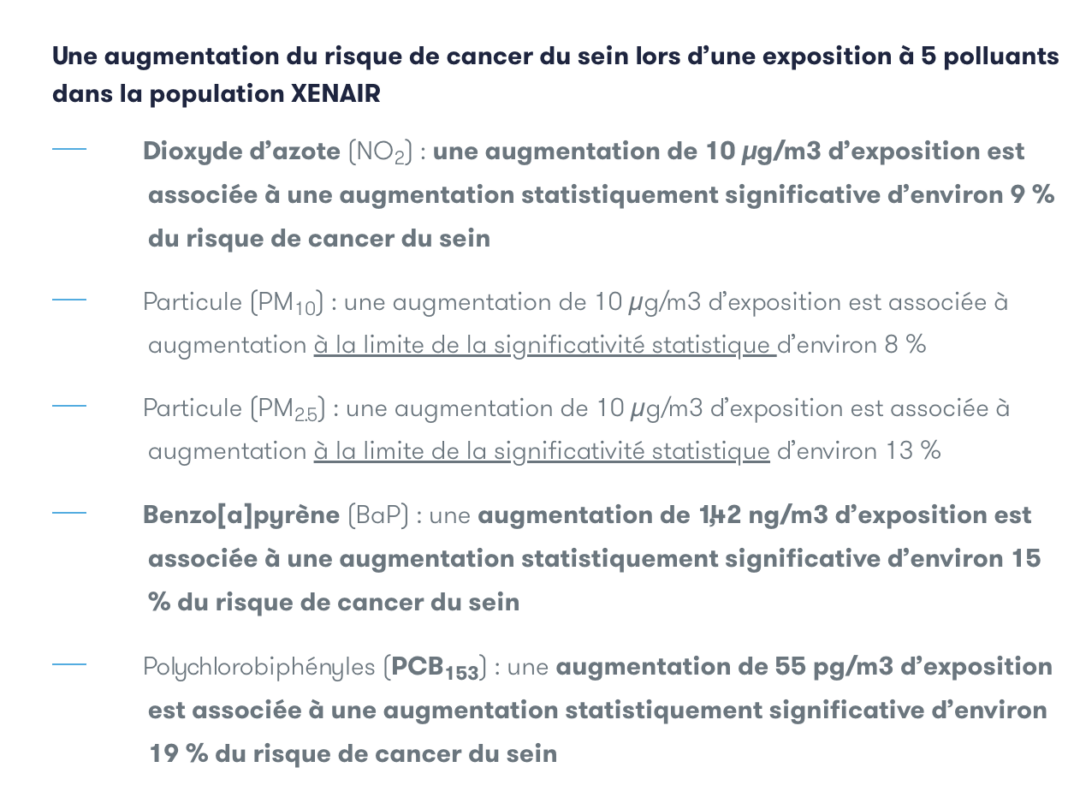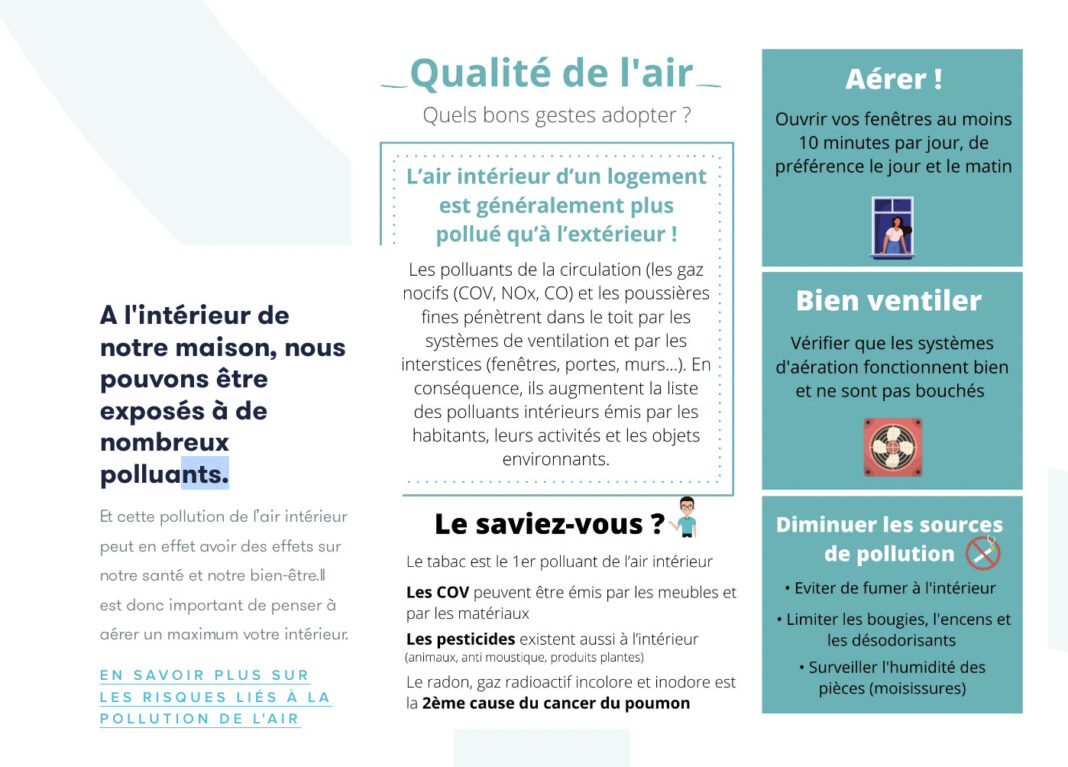Pollution is bad for your health, of course, but how can it actually manifest itself? A new study highlights a correlation between air pollution and breast cancer. The Léon-Bérard Cancer Center in Lyon and Rhône-Alpes, with the support of the ARC Foundation for Cancer Research, followed 10,000 women, sick and not, from 1990 to 2011. A webinar will be held on 3 October 2022 to present the results. The conclusion of this study, called XENAIR, couldn’t be more explicit, as reported Publication :
Epidemiological and experimental studies have suggested that exposure to environmental pollutants, particularly those with endocrine disrupting effects, may play a role in the development of breast cancer. “
The XENAIR study implies 5 air pollutants in the onset of breast cancer
It can therefore be suspected that environmental factors, particularly those with an endocrine disrupting effect, have an impact on the development of the most frequent female cancer in the world. The XENAIR program made it possible to study this hypothesis by focusing in particular on chronic exposure to 8 air pollutants. Five of them stand out strongly, summarizes the Léon-Bérard center:

Nitrogen dioxide (emitted mainly by Traffic) would increase the risk of breast cancer by about 9%. Ray particles, PM10 (from wood heating), 8% would be added, while PM2.5 deriving from road fuels, construction sites and the manufacturing industry would increase the risks by 13%. Side smokethe combustion of coal tar which spreads benzo[a]pyrene (BaP), that of wood and plants, that of cigarettes, that of exhaust pipes and grilled meats increase the risks by 15%. The fifth pollutant holds the premium for the + 19% cancer risk: polychlorinated biphenyls (PCB153), which emanate from industrial combustion.
It’s hard not to imagine the cocktail effect of all this, especially for a long period of exposure. The XENAIR project also took over a higher incidence during the transition to menopause.
Breast cancer prevention requires green policies
Fighting air pollution could therefore help reduce the risk of developing breast cancer. In France, in 2020, there were 58,500 new cases. We also know that this air pollution kills more than 48,000 people in France, according to the National Food Safety Agency (ANSES), and nearly 7 million worldwide, according to WHO.

Of course, small individual gestures can help reduce indoor pollution, as the Léon-Bérard cancer center points out on its website, but it is above all large-scale ecological policies that could really change the situation.
Featured photo credit: Thirdman from Pexels via Canva.
Source: Madmoizelle
Ashley Root is an author and celebrity journalist who writes for The Fashion Vibes. With a keen eye for all things celebrity, Ashley is always up-to-date on the latest gossip and trends in the world of entertainment.




